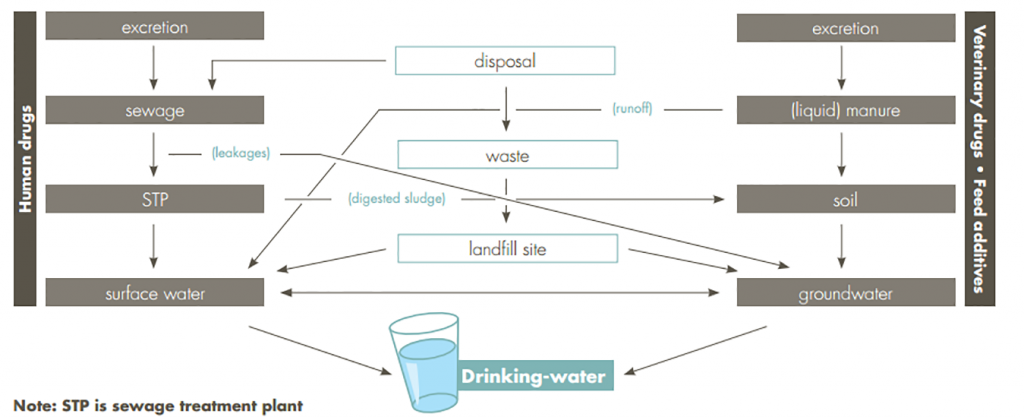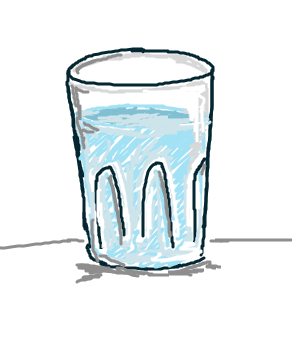The Quality of Water by Your Marque Team
Bad water is bad for you, but safe water is key – and good for you! There’s no doubt that water is good for you, but did you know that water containing arsenic and lead can lead to nerve, heart and skin damage? This was the case in Flint, Michigan. It was called the ‘Flint water crisis.’ The discovery of lead and other toxins in Flint, Michigan’s water has put a spotlight on the quality of water. Many Americans don’t know that our tap water has been fortified with fluoride since the 1950s. We pay municipalities to treat, test, and conserve our water, so you think it should be safe, right? Is bottled water better than tap water? According to ABC News, “Bottled water may be no safer or healthier than tap water, while selling for up to 1,000 times the price because there are more standards regulating tap water in the U.S. than those applied to the bottled water industry.”
The occurrence of pharmaceuticals in water supplies and the effects on human consumption have not been significantly monitored. Here is an introduction to the water supply outlined below:
Did you know that tiny amounts of pharmaceuticals such as antibiotics, hormones, mood stabilizers, and other drugs are found in our water supply? In 1994, the fish population of the Potomac River became headline news because there was an over-abundance of female fish and even the male fish exhibited female traits and developed both ovaries and testes!
Boiling tap water will not make it pharma-free, but a reverse osmosis system can eliminate certain medications from it. According to the NRDC (Natural Resources Defense Council), 40 percent of all bottled water is sourced from tap. Bottled water companies that use municipal source water are obligated to sell it as “purified water” or “reverse osmosis water.” Purified water is water that has been treated with a reverse osmosis system. This may include ultraviolet light treatment or a multiple barrier filtration system. Take note- it’s still tap water. Steam distilled purified water is boiled, steam harnessed and bottled, leaving impurities behind, essentially making it boiled tap water.
You should know the source of the drinking water used at home. Spring water comes from an underground source from which water rises naturally to the surface. Artesian well water occurs naturally within the earth, but needs to be extracted and purified. Check the labels of your water at home to keep you and your family safe.
- Never flush expired medication. Instead, turn it into a pharmacy so they can properly dispose of it.
- Keep your water filters clean. This might include replacing it, cleaning it out or sometimes calling a professional for service.
- Wash water containers regularly. You can have the best water treatment in the world, but if you put clean water in a dirty container, it may no longer be safe to drink.
The information provided is for general interest only and should not be misconstrued as a diagnosis, prognosis or treatment recommendation. This information does not in any way constitute the practice of medicine, or any other health care profession. Readers are directed to consult their health care provider regarding their specific health situation. Marque Medical is not liable for any action taken by a reader based upon this information.
Sources:
http://www.health.harvard.edu/newsletter_article/drugs-in-the-water
http://www.webmd.com/a-to-z-guides/features/drugs-in-our-drinking-water
http://www.cdc.gov/healthyplaces/healthtopics/water.htm
https://newrepublic.com/article/115883/drugs-drinking-water-new-epa-study-finds-more-we-knew
http://www.cleanwateraction.org/programinitiative/fighting-drugs-drinking-water
http://abcnews.go.com/Business/study-bottled-water-safer-tap-water/story?id=87558


